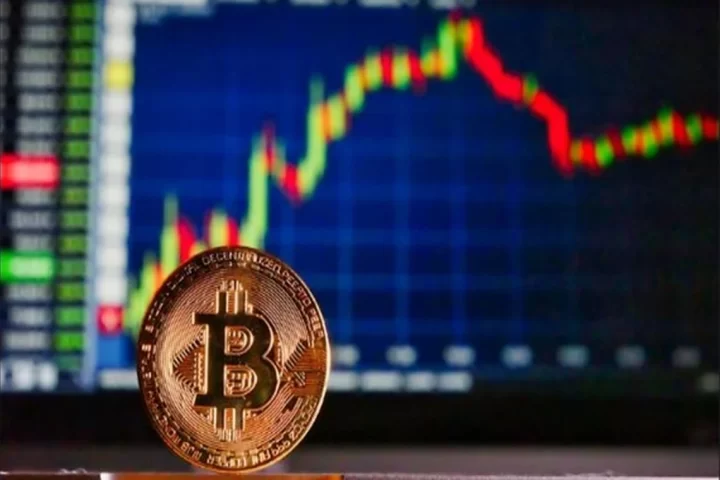Seoul, South Korea, 14th November, 2022, Chainwire
ARGOS ID is delighted to introduce the world’s first Travel Rule solution for crypto wallets. The service brings full coverage on verifying unhosted wallets which virtual asset service providers(VASPs) find challenging in the current stage.
As of the FATF guidance on verifying the originator and beneficiary information on virtual asset transactions, knowing the identities of the crypto wallet holders have been required. In order to comply with the FATF’s guidance regarding unhosted wallets, jurisdictions have started applying enforcement and supervisory measures to local VASPs.
To jurisdictions looking for a simplified Travel Rule solution, especially for personal crypto wallets, ARGOS ID plays a key role. ARGOS ID brings the following benefits to VASPs:
Easy connection to unhosted wallets
With ARGOS ID, crypto wallet holders can easily verify the information of their multiple crypto wallets. Creating a crypto wallet is done without submitting any personal information. In order to verify the holder of the crypto wallet, it is necessary to verify the identity information of the wallet holder. ARGOS ID helps on identifying the unhosted wallet users to both the originator and the beneficiary.
After the creation of the ARGOS ID users can connect to multiple crypto wallets such as MetaMask, Phantom, WalletConnect, and more with just a one-time identity verification process(KYC).
Digital ID suitable for Web 3 environment
ARGOS ID provides an ideal environment where individuals can manage information by themselves. It is suitable for the Web 3 environment as ARGOS ID users can decide which information to delete or revise after completing crypto wallet verification. Information includes SNS login, verified crypto wallet, and photos submitted for ID and selfie during the KYC. The owner of the wallet can manage his or her personal information as ARGOS ID is a self-sovereign digital ID.
Simplified procedure for verifying multiple personal wallets
Connect multiple crypto wallets with one-time KYC (Know Your Customer). The KYC process must be completed after creating ARGOS ID. Currently, ARGOS ID supports 5 blockchain networks – Ethereum, Solana, Binance Smart Chain, Polygon, and Klaytn – and more will be added in the future.
Post creating ARGOS ID with social login, KYC is performed. Once KYC is completed, multiple crypto wallets such as MetaMask, Phantom, and WalletConnect can get connected and verified through ARGOS ID.
Virtual asset transactions available to the Third Party
ARGOS ID lets virtual asset transactions be possible for a third party, which means sending the virtual asset to non-VASP customers is also possible. For example, when a VASP customer wishes to send virtual assets to a third party, a person who is not a VASP customer, ARGOS ID can also be applied. Crypto wallet verification is available with ARGOS ID to both VASP customers and non-customers.
Once both crypto wallets are verified, exchanging virtual assets between customers and non-customers becomes possible. As both the sender’s crypto wallet and the receiver’s wallet have been verified including KYC, it is expected to alleviate the inconvenience of numerous virtual asset exchanges in the current stage.
ARGOS ID is a digital ID suitable for the Web 3 environment. Apply ARGOS ID solutions to your service as it supports you in meeting regulatory compliance on sending and receiving virtual assets. Safely secure the necessary sender’s and receiver’s information with ARGOS ID. With simple API and Web SDK, get ARGOS ID in your service ready without any delay. Experience the simple, fast, and easy integration.
About ARGOS
ARGOS has started the business aiming to provide seamless KYC. With the advent of Web 3 and the rise in the crypto industry, ARGOS has expanded its business into ARGOS ID. ARGOS ID aims at providing a Travel Rule solution for verifying unhosted wallets. Make Unhosted Wallets Compliant.
For more information, visit: Website | Twitter | LinkedIn | Medium
Contact
Marketing Manager
Jieun Lina Kim
Fullstack Inc.
jieunkim@argoskyc.com
82-10-6480-3423
Major industry leaders across the crypto market have warned investors to transfer their holdings to self-custody markets following the massive crash of FTX.
Executives such as Binance’s Changpeng Zhao (CZ) said in recent statements that holders were urged to take measures following the collapse.
CZ said in a tweet on 13 November: “Self custody is a fundamental human right. You are free to do it anytime. Just make sure you [do] it right.”
Self custody is a fundamental human right.
— CZ 🔶 Binance (@cz_binance) November 13, 2022
You are free to do it at any time.
Just make sure you do do it right.
Recommend start with small amounts to learn the tech/tools first.
Mistakes here can be very costly.
Stay #SAFU
He added that investors were recommended to “start with small amounts” to learn about the technologies and tools first. “Mistakes here can be very costly. Stay #SAFU,” he concluded.
According to Safe, a smart contract wallet, over $800 million USD in funds flooded the platform following the collapse.
Over $800M net in-flows into @Safe since last Tuesday. $325M on Thursday alone. Looks like a flight to self-custody. pic.twitter.com/hiuij9dp7s
— lukasschor.eth | Safe (@SchorLukas) November 13, 2022
Safe co-founder Lukas Schor said in a statement: “Over $800M net in-flows into @Safe since last Tuesday. $325M on Thursday alone. Looks like a flight to self-custody.”
A further incident where Cryto.com sent 320,000 ETH to Gate.io sparked massive criticism, with some stating investors should not store their holdings on centralised platforms “for longer than you need to,” Daily Gwei host Anthony Sassano said on a 14 November show.
Many investors began moving their money to self-custody contracts following the incident. Glassnode reported that over 90,000 crypto wallets received funds from central platforms on 9 November, the third of just three times in crypto history that such unprecedented events had taken place.
Crypto.com chief executive Kris Marszalek has joined a growing list of cryptocurrency firms publishing their “audited proof of reserves” in the aftermath of the FTX crypto scandal.
The message comes shortly after a second platform, Solana, temporarily halted transactions on its USDC and USDT coins on Wednesday, triggering concern from Crypto.com.
It reassured customers they could withdraw both coins from its systems, indicating some networks were unaffected by the downtime.
“[We] will publish the list of cold wallet addresses and balances for major assets within 24 hours. Full transparency,” he said in one of his tweets.
https://t.co/pFc4Pz9nFR will publish the list of cold wallet addresses and balances for major assets within 24 hours.
— Kris | Crypto.com (@kris) November 11, 2022
Full transparency.
He added in the thread: “We share the belief that it should be necessary for crypto platforms to publicly share proof of reserves”
Solana has an active and robust ecosystem of builders. The network is strong. @solanaconf demonstrated that the energy and commitment and range of projects is stronger than ever. That hasn’t changed in the last 48 hours.
— Solana (@solana) November 10, 2022
The vision remains the same. A thread 🧵 pic.twitter.com/Ly0XxcHUNk
Additional companies, including Binance, the world’s largest exchange platform, also pledged to remain transparent with their crypto reserves by establishing a Proof of Reserves audit system.
The company said in its statement that it would share details of hot and cold wallet addresses to create a “Merkle tree [proof of funds]” it would share with the community “in the next few weeks.”
It concluded: “Our objective is to allow users of our platform to be aware and make informed decisions that are aligned with their financial goals.”
FTX, SBF Downfall
News of the blackout comes just days after crypto markets spiralled into a freefall after major crypto exchange platform FTX collapsed, citing a massive liquidity crunch
The company attempted a deal with Binance to receive crucial liquidity boosts, but the deal fell through after the former’s chief executive, Changpeng Zhao (CZ), backed out of negotiations over the latter’s compliance issues.
Both companies had entered a “non-binding Letter of Intent” to buyout FTX.com to bail out the struggling platform from its liquidity crisis.
News of the fallout triggered an unprecedented bank run of FTX’s cryptocurrency, FTT, leading to further headaches for the company.
Company CEO Sam Bankman-Fried (SBF) saw his fortunes wiped out from roughly $26 billion to $1 billion after the major incident, with both FTX and his hedge fund Alameda Research plummeting to $1 in value.
Solana’s (SOL) price also nosedived roughly 30 percent to around $14.97, or a 30.29 percent drop in the last 24 hours, according to data from CoinMarketCap.
Solana has an active and robust ecosystem of builders. The network is strong. @solanaconf demonstrated that the energy and commitment and range of projects is stronger than ever. That hasn’t changed in the last 48 hours.
— Solana (@solana) November 10, 2022
The vision remains the same. A thread 🧵 pic.twitter.com/Ly0XxcHUNk
Despite this, company co-founder Anatoly Yakovenko tweeted that his company “didn’t have any assets on ftx.com” and still had “tons of runway” to operate despite the downturn.
He said in a tweet that Solana had an “active and robust ecosystem of builders” with a strong network, concluding: “that hasn’t changed in the last 48 hours.”
Bitcoin miner Marathon Digital Holdings has reached the second spot for Bitcoin reserves for public firms, the company revealed in its third quarter (Q3) conference call on Tuesday.
To date, figures show the firm holds 11,300 BTC, totalling $205 million USD, to reach the number two spot globally, Marathon Digital announced, citing unnamed third-party information.
Q3 Figures and Facts
The Las Vegas-based firm remains surpassed by MicroStrategy Inc, which owns 130,000 BTC, with Coinbase and Block Inc, Jack Dorsey’s crypto platform, following at third and fourth, respectively.
In the call, it also noted October was its most productive month in operational history after it added a further 615.
.@fgthiel: “We have sequentially improved our bitcoin production, from 72 bitcoin in July, to 184 in August, then to 360 in September, and then to a record 615 in October. October was the most productive month in our Company’s history…” pic.twitter.com/wsfv0XOIuV
— Marathon Digital Holdings (NASDAQ: MARA) (@MarathonDH) November 8, 2022
Chief Executive Fred Thiel said that consistent improvements to its Bitcoin production were “the direct result of increasing our hash rates by bringing more Bitcoin servers online and improving those servers.”
He added that the company had still not sold any Bitcoin and would only do so when necessary to “cover operating expenses,” compared to other firms such as Argo, Core Scientific and others.
Q3 net losses for the firm topped roughly $75.4 million and revenues plummeted 75.5 percent year-on-year to $12.7 billion, the report found.
Binance-FTX Buyout Row
Later in the call, Thiel cited the ongoing row between Changpeng Zhao, Binance’s CEO, and FTX’s Sam Bankman-Fried, which he claimed caused turmoil to Bitcoin’s pricing.
Despite ongoing market instability, following a massive short liquidation of BTC and ETH in November, Thiel said in the call he believes BTC would return to $18,000 to $20,000.
The news comes amid a tumultuous market, namely after FTX liquidity reached crisis levels this week, triggering the massive cryptocurrency exchange to seek assistance from Binance, the world’s largest exchange.
News of the potential FTX buyout sent cryptocurrencies tumbling, with BTC plummeting to below $17,000 and Ether (ETH) nosediving to $1,160, CoinGecko exchange prices showed on Wednesday.
BaFin, Germany’s Federal Financial Supervisory Authority, has ordered Coinbase to set up Coinbase Germany GmbH over alleged violations “proper business organization.”
In the document, the government body has cited the German Banking Act in the order, which urges Coinbase’s Germany branch to have “suitable arrangements for managing, monitoring and controlling risks and appropriate arrangements by means of which the institution’s financial situation can be gauged with sufficient accuracy at all times.”
The government has also required Coinbase Germany to provide audit certificates for its annual accounts when needed. The order has also stated that the cryptocurrency exchange had outsourced several of its services, stating the latter did so as “essential for conducting banking business or providing financial services.”
The order took effect on 27 October, accusing Coinbase Germany of “organizational deficiencies at the institute.
“The regularity of the business organization was not given in all audited areas,” it added.
What Are Germany’s Rules
The news comes after BaFin issued Coinbase Germany with a licence to conduct exchanges in July last year.
According to Koinly’s assessment of Germany’s Banking Act, cryptocurrency mining is legal pending commercial operators determine whether they need a BaFin approval and licence.
Day trading is considered a commercial activity and may receive different tax breaks compared to private assets. Cryptocurrency futures in Germany have faced intense scrutiny from the European Union (EU) as they do not qualify as responsible investments. Despite this, some cryptocurrency exchanges still offer futures as products.
Mastercard, one of the world’s top global payment system providers, has onboarded several cryptocurrency and blockchain small and medium enterprises (SMEs) to expand its fintech accelerator programme, it announced on Thursday.
Mastercard’s Start Path programme onboarded seven additional fintech startups in a bid to train, deploy, and grow crypto and blockchain-based companies using its payments system platform.
The latest cohort consists of the following companies:
- Loot Bolt, a US company building communities with Web3-based social payment systems.
- Quadrata, who uses privacy-focused, Sybil-resistant solutions to enhance compliance public blockchains and reduce reputational risk
- Stable, a Colombian company providing peer-to-peer (P2P) payments and global remittances using stablecoin and related technologies.
- Digital Treasures Center (DTC), a Singapore-based company providing transactional technologies via card, crypto, and cash, using its DTC Pay platform
- Fasset, an Abu Dhabi digital asset exchange for emerging markets building Web3 use cases for customers to buy, sell, and own digital assets.
- Take Back the Mic (TBTM) has developed a world-first blockchain media fintech company to reward creatives and fans with monetised content platform.
- Uptop, a US-based company with a place for brands to build customer relationships and provide shoppers with bespoke rewards
In its statement, Mastercard explained that fintech firms played a “major role in digital transformation” with new ideas, customisation, and more choice for enterprises and consumers.
It continued: “We believe collaboration across the crypto ecosystem is essential to delivering the right solutions at the right time. From our experience innovating payments and building a global network, we believe it’s more likely that we’ll see a hybrid economy that combines the benefits of Web3 technology with existing financial infrastructure.”
Start Path Background
Mastercard launched its accelerator programme in 2014 as a six-month course designed to expand and commercialise startup solutions. Over 350 firms have joined the initiative, with startups such as Thought Machine and Zeta and Razorpay reaching unicorn status.
Start Path’s latest cryptocurrency-focused division, Start Path Crypto, opened in 2021 with a three-month programme to back crypto companies receiving seed, Series A, and Series B funding.
The news follows developments in mid-October after Mastercard unveiled its Crypto SourceTM programme, which builds crypto solutions and services for financial institutions.
The fintech giant offered a full suite of services for buying, selling, and holding crypto assets along with security and advisory services, building security and compliance capabilities for the global ecosystem.
The Bitcoin Yardstick, a metric coined by Charles Edwards, chief executive of asset management at Capriole, has hit near record lows following the 2017 bull market run.
He said in a recent tweet that the Bitcoin Yardstick was “a very simple, rule-of-thumb Bitcoin valuation tool”, but was “not investment advice.”
Edwards, whose measurement calculates the ratio of Bitcoin market capitalisation to hash rate, believes that Bitcoin is oversold more than most coins, indicating how cheap buyers can purchase BTC.
Introducing: The Bitcoin Yardstick
— Charles Edwards (@caprioleio) November 2, 2022
Today we are seeing valuations unheard of since Bitcoin was $4K.
A very simple, rule-of-thumb Bitcoin valuation tool.
Bitcoin Yardstick = market-cap / hash-rate, normalized over 2 years of data.
As always: not investment advice.
A short🧵 pic.twitter.com/bsFk0hh9ra
Current figures show that Bitcoin’s hash rate has hit record highs, with prices falling 75 percent since its last price spike in November last year.
Speaking further in his Twitter thread, he said the Yardstick method takes the “ratio of energy work done to secure the Bitcoin network in relation to price.”
He added: “Lower readings = cheaper Bitcoin = better value.”
Concluding, he stated: “This means that on a relative basis, Bitcoin is extraordinarily cheap given the amount of energy being used on what is the most powerful computer network in the world.”
Here’s an application of the Bitcoin Yardstick which identifies when Bitcoin is:
— Charles Edwards (@caprioleio) November 2, 2022
– Cheap: Yardstick > 1 deviation under the mean
– Risky: Yardstick > 2 deviations above the mean
– Expensive: Yardstick > 3 deviations above the mean
3/6 pic.twitter.com/ZVabEBQD3x
Investors interested in following his Bitcoin Yardstick equation can visit Glassnode Studio for updates.
The Bitcoin Yardstick cits the proof-of-work (PoW) concept based on the mining algorithm for the cryptocurrency network’s storage and growth value over time, as evidenced by the Bitcoin Standard authored by Saifedean Ammous.
Sources also indicate the power required for the Bitcoin network is much less than the value of traded cryptocurrencies, with crypto miners and firms alleging of unfair valuation rates.
Huobi, a Chinese crypto trading platform, announced plans on Tuesday it would relocate to the Caribbean in a surprise move, the Financial Times reported.
The firm stated in its report it may potentially choose the Dominican Republic, Panama, or the Bahamas for their “super-friendly” positions on cryptocurrencies and English language use, the Financial Times reported, Justin Sun, Huobi board member, said at the time.
He said: “These days, one of the biggest targets we have here is to go all in the Caribbean.”
The company is currently headquartered in Seychelles and has offices in South Korea, Hong Kong, the US, and Japan. The company could move roughly 200 workers to the new location, FT wrote.
The news comes after Huobi officials visited Roosevelt Skerrit, the country’s Prime Minister, to build Domenica’s cryptocurrency networks, technologies, and infrastructure.
Other companies registered in the Caribbean include FTX, C-Trade, Binance, and PrimeBit.
Layoff Rumours
The news comes amid rumours the company would launch a wave of layoffs amid the ongoing cryptocurrency bear market.
Chinese cryptocurrency blogger Colin Wu said in recent reports Huobi planned to shed some of its staff after Capital Management (HK) Co Ltd bought out the firm, becoming its controlling shareholder.
About Capital CEO Ted Chen and H.E. Justin Sun share their vision for Huobi Global after acquisition.@justinsuntron said: “Our key focus will be on supporting the Huobi Token (HT) .”https://t.co/fvfJEYAzZ6
— Huobi (@HuobiGlobal) October 10, 2022
In October, About Capital Management (HK) Co. Ltd, a Hong Kong based-asset management firm, became Huobi Global’s controlling shareholder following a successful buyout deal.
In an official statement, Ted Chen, chief executive of About Capital Management and Sun issued a joint statement refuting claims of the layoffs, adding it had a “healthy cash flow.”
Concluding, Sun said: “Having completed its exit from the mainland China market, Huobi Global will be embarking on a series of branding activities and business developments after the acquisition. Instead of releasing new tokens, our key focus will be on supporting the Huobi Token (HT) to strengthen its place in the virtual assets industry.”
Bitcoin (BTC) may be entering the end of its bear market cycle, predictions from analytics firm Glassnode have noted this week.
Data from the firm has hinted that the market may have reached its macro price bottom due to ongoing seller behaviours.
The analysis from the website’s Seller Exhaustion Constant also revealed that the BTC network was weathering its “perfect storm” of high on-chain losses.
In the latest hint that Bitcoin’s latest bear market is nearing its end, Glassnode has revealed that the network is currently weathering a “perfect storm” of low volatility and high on-chain losses.
Twitter posts indicated that the rarity of the market bottom would result in upside volatility, ending the bear market.
The #Bitcoin seller exhaustion constant has recorded the lowest value since November 2018.
— glassnode (@glassnode) November 3, 2022
This metric reaches such levels when volatility is low, but losses realized on-chain are high.
6-of-7 similar levels in the past preceded volatility to the upsidehttps://t.co/RZf0bn2UQB pic.twitter.com/YFta3DTrkV
According to the Thursday tweet, the Bitcoin seller exhaustion constant had “recorded the lowest value since November 2018.”
Such metrics took place with low volatility, but “losses realized on-chain are high.”
The tweet concluded that “6-of-7 similar levels in the past preceded volatility to the upside.”
1/ Bitcoin’s short-term holder cost basis has crossed below its long-term holder cost basis for only the 4th time ever.
— Yassine Elmandjra (@yassineARK) October 4, 2022
This cross historically marks a cyclical bottom.
New edition of The Bitcoin Monthly is officially out, feat guest author @WClementeIIIhttps://t.co/qiQWSZ9yJr pic.twitter.com/O6EQLxbnlq
ARK Invest and David Puell, who created the Puell Multiple indicated, created the Seller Exhaustion Constant.
According to Yassine Elmandjra, it is calculated by “the percentage of bitcoin total circulating supply in profit multiplied by its volatility over the last 30 days.”
He said in a Friday tweet that Bitcoin’s short-term holder cost basis had “crossed below its long-term holder cost basis for only the [fourth] time ever.”
He concluded: “This cross historically marks a cyclical bottom.”
El Salvador president Nayib Bukele has posted on Twitter several BTC buyouts after the country positioned Bitcoin as a mainstream legal tender.
Despite this, national state development bank BANDESAL blocked anti-corruption watchdog ALAC El Salvador from receiving key information about its activities in Bitcoin transactions.
The news comes after BANDESAL launched a $150 million trust fund to facilitate liquidity of the coin for those using it for individual and business use.
#BITCOIN | En septiembre, @BANDESAL, encargado del Fideicomiso Bitcoin, denegó entregar información por segunda vez sobre la compra y venta de #Bitcoin por parte del gobierno de @nayibbukele, alegando reserva. Informó @ALAC_SV. pic.twitter.com/KE6EiqqBAT
— FOCOS (@focostv) October 31, 2022
The development bank blocked ALAC El Salvador from receiving the data, citing confidentiality. The latter later hit back, stating the bank purchased BTC with public money.
The organisation said in a statement: “The confidentiality limits the possibility for citizens to access and receive information on the operations carried out with public funds by BANDESAL.”
BANDESAL responded, stating it could not share information on its Bitcoin Trust (FIDEBITCOIN) due to national interests. According to public data, El Salvador bought up 2,301 BTC to date, which plummeted from $103.9 million to $45 million over the last year.
The news comes after Spain beat El Salvador as the world’s top spot for crypto after the United States and Canada at 34,345 and 2,653, respectively, data from CoinATMRadar revealed.
Congress Backs Crypto
The news comes after Bukele adopted cryptocurrencies as a national tender for the country following a successful 62-22 vote in favour of the measure in June last year.
Approval of the digital currency would allow citizens abroad to remit money back to their families as the country does not have a sovereign coin, instead relying on the US Dollar.
Bukele said in a statement at the time the move would “bring financial inclusion, investment, tourism, innovation and economic development for our country.”











